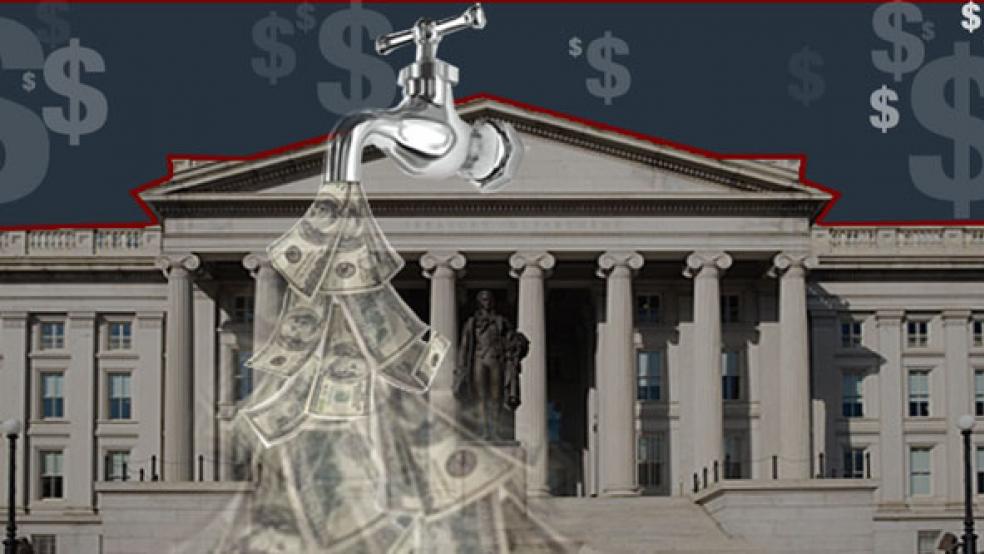A group of influential investors and policy wonks says that a major expansion of government spending appears all but inevitable in the next few years.
Barry Ritholtz, a Bloomberg columnist who runs an eponymous wealth management firm in New York, published a piece in Bloomberg Businessweek Tuesday that describes the most recent session of “Camp Kotok,” an informal, wine-fueled gathering of bankers, analysts and investors that occurs each summer in Maine.
The focus of this year’s meeting was the Federal Reserve’s struggle to deal with a slowing economy against a background of low inflation, plunging interest rates, a burgeoning trade war and a president who has sought to undermine the bank’s independence, Ritholtz writes. At a debate led by analyst Jim Bianco of Bianco Research, the group focused on a controversial but increasingly prominent approach to federal spending known as Modern Monetary Theory, or MMT, which holds that the government should spend as necessary to move the economy toward full employment without worrying about growing deficits, as long as inflation remains low.
Given the weak hand the Fed is currently playing, with little room to cut interest rates and a lack of policy tools to deal with trade conflict, the participants largely agreed that policymakers will at some point in the not too distance future pick up the tools recommended by supporters of Modern Monetary Theory:
“The surprising consensus was that whether it comes from the political Left or Right, MMT is inevitable,” Ritholtz writes. “Expect future infrastructure projects, Medicare for all, and/or tax cuts to be funded by bonds authorized by Congress, issued by the Treasury, and purchased by the Federal Reserve."
That’s not to say that the Kotok campers were in favor of such a fiscal turn. To the contrary, most of the participants took a decidedly skeptical view of the scenario, Ritholtz reports, as you might expect at a gathering of bankers: “The group takeaway was as simple as it was snarky: ‘Free money! Whatever could possibly go wrong with that?!’”
At the same time, the campers recognized other problems that may be more pressing, including the looming threat of negative interest rates. The U.S. economic system is based on positive rates, Ritholtz notes, and “if rates flip negative in the U.S., as they already have in Germany and Japan, no one knows what will happen.”




